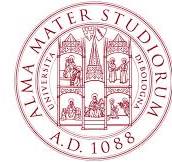Road Traffic management
Topic leaders: Maria Nadia Postorino (UNIBO) and Nadir Farhi (Uni. Eiffel)
The development of new intelligent transport systems continues to involve a large number of researchers and laboratories over the world. This is due to the desired and expected gains from these new systems, particularly in terms of the traffic management and of the reduction of pollutant emissions. Although several levels of decision-making and traffic management are needed, the local (decentralized) level becomes very interesting with the increasing development of the vehicle automation. Indeed, vehicles continue to be equipped with different types of sensors, computing capacities and communication equipment. However, the information is often local and the computational capacities as well as the communication ranges are limited. The cooperative control approach of multi-agent systems consists in determining the optimal behavioural laws of the different agents in feedback on the state of the system at the local level; the optimality being defined on the overall state of the system. Applied to the road traffic management, this would result in maximizing cooperation between communicating agents at the local level (neighbouring agents) to achieve an overall objective in the road network (time spent, emissions, etc.). Scientists at Uni. Eiffel investigate the cooperative control approach applied to the road traffic management, with the aim of proposing new models of cooperation including the modelling of traffic flows. They are interested here in the microscopic modelling of the traffic, but also and especially in progressing to the macroscopic modelling scale, which should make it possible to understand the effect of network-wide cooperation; and therefore, optimize the management of traffic on the network. The models will consider different penetration rates for the communication and different levels of vehicle automation. Also involving local administrations, scientists at UNIBO have carried out studies linked to the development of sustainable mobility. Studies on the behaviour of users, traffic flows of road users are useful activities for the development of microscopic modelling traffic from Uni. Eiffel. UNIBO has also developed some research on the response of users in the use of new technologies for automated driving that can be used for the development of shared studies.
The synergy stands at the level of the integration of road safety, human factors and sustainable transport studies into the development of traffic modelling. UNIBO can also provide case studies thanks to an important partnership with SPEA Engineering a private engineering office working for safety and the environment: http://www.spea-engineering.it/), while Uni. Eiffel provide expertise in traffic modelling and traffic management in transportation networks.A co-funded thesis is already accepted and it will start in 2021. The aim is to design new regional traffic model. The subject is an application of interest for local transportation planning authorities such as DRIEA, IdFMobilites, RATP, SNCF for Ile-de-France, and SRM (Bologna Metropolis agency for road and mobility), and ITL (regional transport agency) for Bologna.
